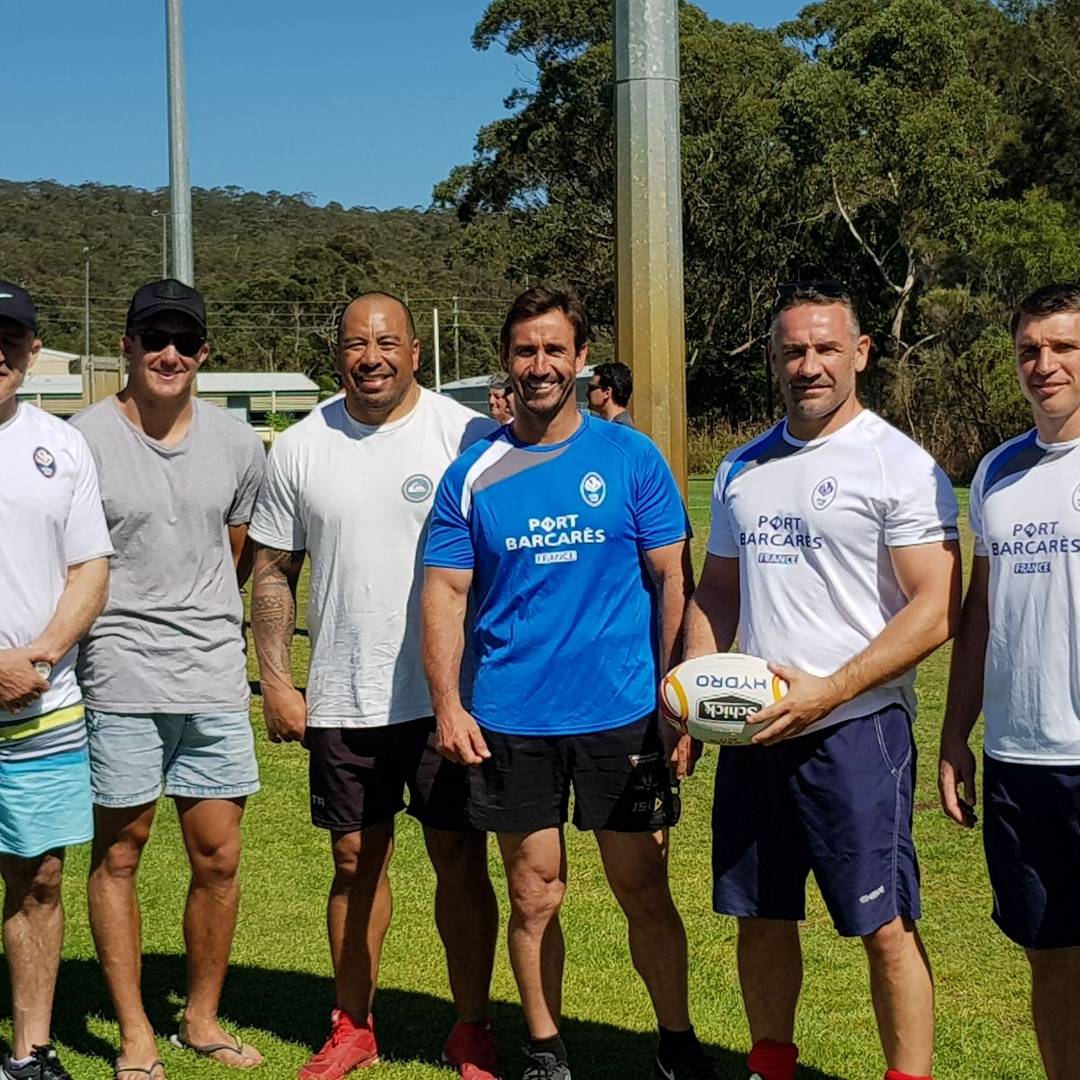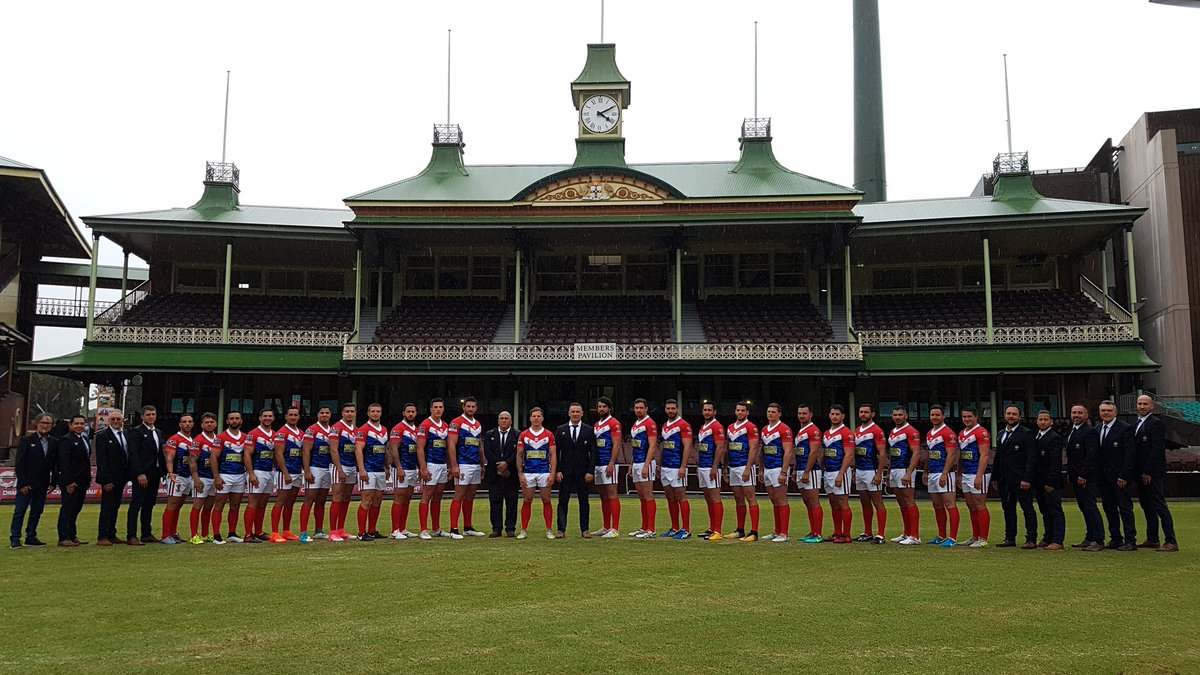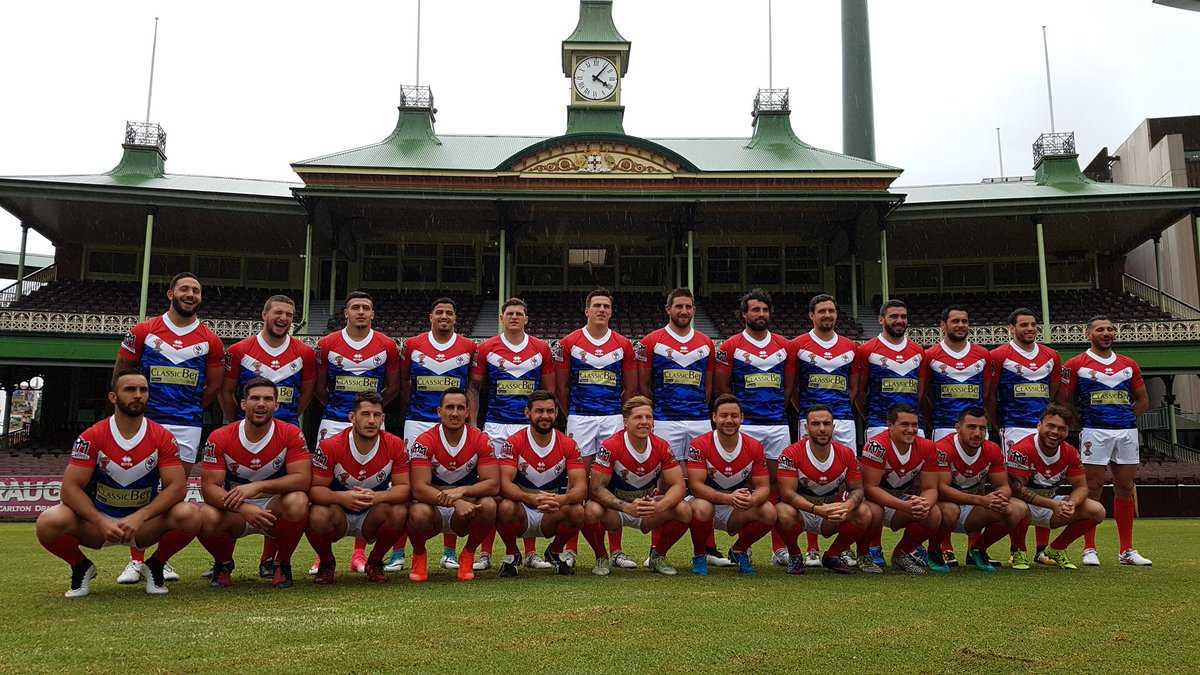more on the rise and (deep) fall of French RL:
http://www.dailytelegraph.com.au/sp...e/news-story/960bd7b6e9425938d44dca3f37643f4b
France 2017 Rugby League World Cup preview: Squad ...
www.dailytelegraph.com.au
WE wouldn’t have a World Cup without France. From the time they played their first Test match in the mid 1930s, they were campaigning for a tournament to crown the ...
WE wouldn’t have a World Cup without France.
From the time they played their first Test match in the mid 1930s, they were campaigning for a tournament to crown the world’s best.
Paul Barriere, the legendary president of the French Rugby Legaue got the English to back the concept in 1952 and the first World Cup took place on French soil in 1954. A crowd of 30,000 packed into the Parc des Princes in Paris to watch the hosts go down 16-12 to Great Britain.
But, like so much of French rugby league’s history, France’s role in the World Cup has been forgotten. Now there’s a big three but the old fellas will tell you, it used to be a big four
France are the only team in the world to have beaten Australia, New Zealand and Great Britain. They were fast starters, downing Wales in their second Test in 1935, drawing 15-all with England in just their third ever match and beating the Poms for the first time in 1939, five years after their first Test.
Kangaroos defender Reg Gasnier (right) moves in on opponent during France v Australia test during 1963-64 Kangaroo Tour.
In 1948 they played New Zealand for the first time and split the two game series one-match each.
And in 1951 they were the best team in the world, bar none.
Lead by the legendary Puig Aubert, a laconic, enigmatic, unorthodox but above all brilliant fullback, France toured Australia for the first time and beat the home side 2-1 in the three match series. Their expansive play made them fan favourites at home and on tour — more than 450,000 people attended their matches in Australia and a crowd of 150,000 French attended a triumphant street parade in Marseilles upon their return.
They played England in that year’s European championship and destroyed them 42-13. To top things off, they beat New Zealand 2-0 in their two-match series that December.
The golden age of the 1950s continued unabated. They beat Australia in two more Test series, both on home soil in 1953 and down under in 1955, and gave New Zealand another taste of defeat when the Kiwis toured in 1956. In 1959 they finished the treble, knocking off Great Britain 24-15 in Grenoble.
French captain Puig-Aubert kisses the cup after winning a 1950 test against Australia at the SCG.
They made the World Cup final again in 1968, losing to Australia 20-2, but remained a tough out for all the touring sides throughout the 1960s and 1970s. In fact, their final Test series win against Australia in 1978 was the Kangaroos only series or tournament loss until the 2005 Tri Nations.
But these are just dates, details, figures that your mind probably slipped over as you were reading them. France were Test footy’s ultimate wildcard, playing the game their own way, always.
In 1960, for example, they had a tour to Australia and were outscored across the three match series 69-21 … … but drew the series. An 8-all draw precipitated a 56-6 hammering by the Australians before France rebounded with a 7-5 victory in the Third Test to level it up.
A French poster promoting the 1952 France v Australia test.
Or you can look at the dozens of yarns surrounding Puig Aubert, the Carcassone and XIII Catalan who seems too colourful to have really existed. Puig Aubert was renowned for chain smoking on the field, once catching the ball one-handed in a match against Wigan because he was sucking down a dart. If a defender broke through the line, he would refuse to make the cover tackle because he said tackling wasn’t a job for a fullback.
France were colourful, adventurous and above all different, they added a rich flavour to the rugby league landscape and the game is poorer for their decline. That decline was steady until it wasn’t and began in the early 1980s.
Always rugby league’s wild west, things got a little out of control in the domestic competition. The 1981 championship final was abandoned after five minutes due to a brawl, and more than once referees and touch judges were attacked in domestic matches. French players sailed close to the wind at the best of times, especially on home soil, and their games against touring sides were renowned for being back-alley affairs.
As the French began to stagnate, the other three nations surged ahead. The Australian rugby league edged closer to full time professionalism, and the introduction of State of Origin boosted the playing pool. New Zealand’s best players joined the comp across the Tasman, and became better for it. The Antipodean countries surged ahead of the British as the best teams in the world, and poor old France, without the infrastructure or the funds to go with them, were left behind.
The playing pool began to dry up and World Cup matches had to be forfeited in the mid 1980s. Crowds for Test matches and domestic games dwindled, and the national side began to falter. They earned their last win over Australia in 1978, their last win over New Zealand in 1980 and their final win over Great Britain in 1990.
Sadly, French rugby league has fallen away in recent times.
Matches against the big three that were once competitive turned into free and easy blowouts. In 1994, sixteen years after they beat the Kangaroos in a Test series, they lost a one-off Test 74-0. Then came the final blow, one that had been lurking for years — rugby union went professional.
Now, the French rugby union clubs are among the richest in the world. They’re true behemoths of the 15-man game, attracting players from all over the world and dwarfing any potential players who could help bring French rugby league back to the top. How can one Super League side, another team in the championship and the old semi-professional Elite One Championship compete with Toulon, Stade Francais and their endless bags of Euros?
Les Chantlicleers have been under the pump for almost 30 years, but they’re still battling away. The memories of the glory years remain strong, and the game still has a niche it’s carved out in the southern part of the country, the traditional stronghold of rugby league. Catalans staved off relegation with victory by the skin of their arses this year, but Tolouse are a club on the up and could push for promotion in 2018. Over 17,000 fans packed out the Parc des Sports in Avignon when France played New Zealand in the 2013 World Cup, the biggest crowd for a home French test since 1980 and 14,000 showed up to a showdown with England at the same venue last year.
France in action during a previous world cup.
Only one of the 24 French players in this World Cup are naturalised — the rest are all products of the French junior system. It’s a great achievement that shouldn’t be overlooked.
France may never reclaim their past glories. Those golden days of the 1950s and 60s are heights they may never scale again. But they’re grinding away, keeping the flame alive, and doing the old legends of the past proud as they strive to once again turn three into four.
SQUAD
As expected, Catalans Dragons make up the bulk of the French side with eight players gaining selection. It was a difficult season for the Dragons as they barely staved off relegation but they’re providing some very capable players such as lock forward Jason Baitieri, Benjamin Garcia and Julian Bousquet. The entire squad is based in Europe and former Rooster Mark Kheirallah is the only naturalised player. Skipper Theo Fages, a tricky halfback from St Helens and Warrington backrower Benjamin Julien are also ones to watch.
BEST XVII
1. Mark Kheirallah 2. Olivier Arnaud 3. Nabil Djalout 4. Bastien Ader 5. Fouad Yaha 6. Theo Fages 7. William Barthau 8. Julian Bousquet 9. Eloi Pelissier 10. Romain Navarrete 11. Benjamin Garcia 12. Benjamin Jullien 13. Jason Baitieri 14. John Boudebza 15. Antoni Maria 16. Thibaut Margalet 17. Clement Boyer
Random French Fact: France are the only team to have beaten Australia, England and New Zealand in a Test match.
PREDICTION
France are in the same group as England and Australia, which means their match against Lebanon in Canberra will almost definitely be a winner-takes-all shot to get into the knockout stage. Getting that far would be a fantastic result for the French and while Lebanon will boast more NRL experience France will have more cohesion among their squad. We’re tipping them to win that one and get knocked out by the winner of Group B in the quarterfinals.











